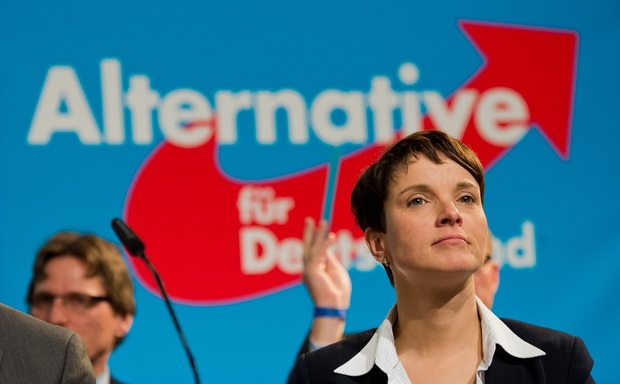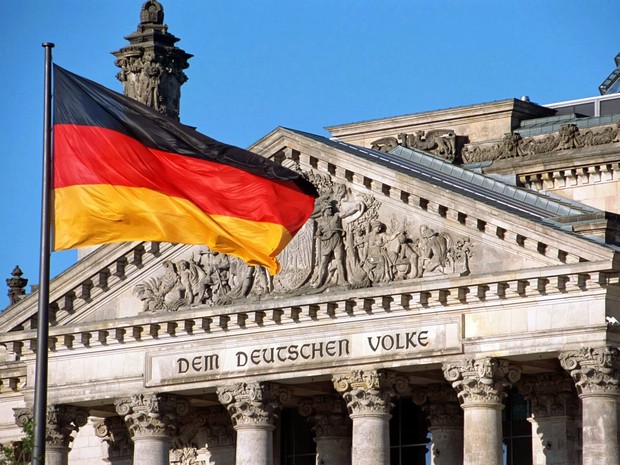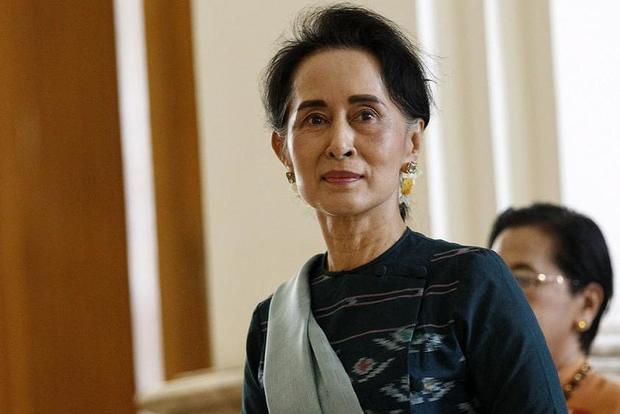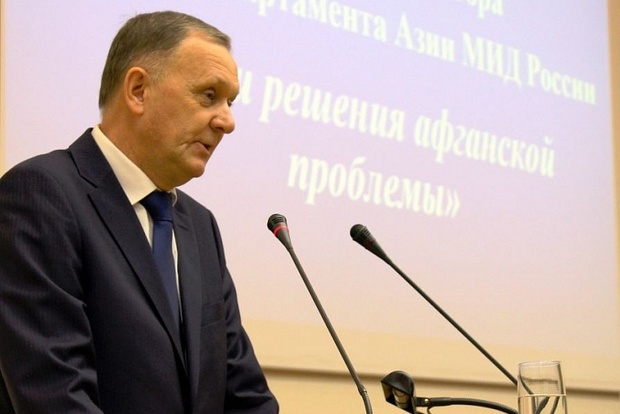International panorama: Merkel’s shaky chair and headache of the Russian ambassador to Myanmar
Former Soviet diplomat Yulduz Khaliullin about the absence of stability in the world. Series 7
Today Soviet and Russian diplomat Yulduz Khaliullin dedicated his new column of the series International Panorama in Realnoe Vremya to events taking place in the West and East. So, our columnist chose parliamentary elections in Germany and the problem of the Rohingya people in Myanmar.
No peace for Frau chancellor
The results of parliamentary elections in FRG were not expected. All the media told that the CDU/CSU bloc would win and Angela Merkel would remain for the fourth term as chancellor. But certain unexpected things arose. The ruling CDU/CSU bloc won with a fewer score than in the last years. English political reviewers estimate that the bloc of the Christian Democrats and Christian Socialists in the elections to the Bundestag has shown the worst result in the latest 70 years having got only 1/3 of the votes (33,5%).
The Social Democrats (SPD) were second with their worst result as well. Earlier the social democrats were included to a big coalition with the ruling bloc. But during the pre-election campaign, their leader Martin Schulz already made a statement that in case of his party's win, he would be a candidate to the chancellorship. Now, this is not the case. The achievement of Alternative for Germany – far-right party – became a sensation for the Germans and Europeans. They conquered about 13% and ended third. In fact, the party that sometimes has nationalist right positions against migration will have, by my estimates, 94 of 709 seats in the Bundestag. They stated right after the announcement of results that they would not leave the ruling bloc in peace, they would pitilessly criticise and create new conditions to develop Germany.
The Free Democrats (FDP) also reduced their number and got 10,7% of votes. They have always cooperated with the ruling party.
The Left party obtained 9,2%. The Greens also joined the parliament having got 8,9%.

Merkel's fourth term is under question?
Of course, Angela Merkel works on creation of a new coalition in the government because 33% in the Bundestag are not absolutely enough for the ruling party to promote its policy, certain decisions. They need at least another 20% of seats for it.
The Social Democrats who got the second place categorically refused to cooperate with the ruling party, be in a coalition with them and switched to the opposition. The third party Alternative for Germany will the main opposition for Merkel.
For the coalition, the chancellor has free democrats and probably the Greens. In other words, the coalition will be able to have about 55%.
The elections showed that FRG unusually banked in the balance of political forces towards the right wing, reduction of the role of CDU/CSU and social democrats, plus the appearance of Alternative for Germany — the biggest far-right party — on the political stage.
Within such a balance of forces in the Bundestag, Angela Merkel will find it more difficult to promote her policy, especially on migration. The oppositionist FDP and the right party will criticise her. I don't exclude that Merkel won't be able to work until the end of her fourth term as chancellor.

Within such a balance of forces in the Bundestag, Angela Merkel will find it more difficult to promote her policy, especially in migration. Photo: vistanews.ru
Elites of the West moving to the right and political stability of the East
The European Union also followed the elections to the Bundestag because Germany is the fourth country in terms of economy in the world (after the USA, China and Japan) and leading in the EU and Western Europe. Many decisions of the European Union are made under the influence of the FRG government and with the chancellor's personal participation. It, in turn, will make a certain impact on other political events taking place in the very system of the European Union: particularly, the big disagreement between EU members and Poland; events in Spain (the referendum is Catalonia) and others.
Political elites' swing to the right is observed in leading western countries when power passes to unusual political leaders who are closely connected with big capital and right views on the development of international relations. First of all, it is seen in the USA, France. By the way, President Macron is also linked with big financial circles of France. For instance, adoption of a new labour law caused a powerful strike in France and other cities – it also shows that leading countries of the West are swinging to the right. It is curious that leading countries of the East remain politically stable in comparison with it. I mean, first of all, China, Russia, Japan and India. The ruling leaders there continue stably managing their countries. Of course, there are exceptions in some countries of the East (Thailand, South Korea) where corruption elements are seen. The relations between North and South Korea – Pyongyang and Seoul – remain the hotbed of instability. In addition, the suppression of its own about 1,5-million population by military forces is taking place in Burma (Myanmar), which created an unseen migration crisis.
Military cleansing in Burma behind the Nobel Prize laureate's back
Actions of the armed forces of Myanmar towards the Muslim minority of its country has caused a great concern of several countries in the last month. They made a series of violent actions, it is almost a classic example of ethnic cleansing. The people, first of all, women and children, had to leave their own homes and move to neighbouring Bangladesh. According to some data, the number of Rohingya refugees has reached 500,000 people by now – it is an unseen number of the internally displaced people in the last 30 years.

''Daughter of the creator of modern Burma Aung San Suu Kyi is one of the national leaders of the opposition has been under house arrest for almost 20 years. Then militaries who were in a crisis had to free her. Her opposition party participated in the latest elections to the parliament.'' Photo: euronews.com
This is why the UN requires imposing an embargo on weapon supplies to Myanmar, requires Myanmar officials to take measures. The international body must impose severe sanctions against those countries that help Myanmar's militaries.
I will tell briefly what Myanmar is – it is former Burma. It is one of the ancient states of Southeast Asia with a population of about 60m people. Its territory is a bit less than 700,000 square metres. General Ne Win's military dictatorship reigned there from 1962 to 1988 (for almost 25 years).
Daughter of the creator of modern Burma Aung San Suu Kyi is one of the national leaders of the opposition has been under house arrest for almost 20 years. Then militaries who were in a crisis had to free her. Her opposition party participated in the latest elections to the parliament. She got the Nobel Peace Prize for the fight against military dictatorship. At the end of the last century, she was allowed to participate in the political life, her party got the majority of votes in the latest elections to the parliament. But she did not become a president, prime minister but got just a post of state adviser and minister of foreign affairs. It is an unusual situation.
It is thought the calculation of the current military officials was simple: to try to continue a slightly changed policy behind her back, which led to the current dangerous situation in Myanmar. There has always been turbulence in the districts where national minorities live.
Bashkir parallels and Russian ambassador's uneasy situation
The majority of refugees turned out in neighbouring Bangladesh. And Bangladesh is one of the poorest countries of the world. It is a country with a territory that is equal to that of Bashkortostan. But about 5m people live in Bashkiria while about 200m people do in Bangladesh on the same territory. The Bangladesh people hosted the refugees but they are not able to maintain them. Bashkiria is the richest region with huge oil reserves. Bangladesh has nothing but floods. And they had to host their Muslim brothers and ask the world community for help.

''Mr Listopadov visited all the regions where Buddhism was seen and continues being present: he was in Tibet, Nepal, India, Bangladesh. In 2005, he wrote an amazing book In the Footsteps of the Buddha that the Institute of Eastern Studies of the Russian Academy of Sciences published.'' Photo: mgimo.ru
The biggest Muslim countries criticised the events in Myanmar and sent relief planes. Indonesia where 200m people live (the biggest Muslim country) did not stay on the sidelines, too.
My friend Nikolay Listopadov was appointed an ambassador to Myanmar two years ago. I feel pity for him to a certain degree. He is the biggest Burma researcher, wrote half-dozen of books about Burma, he is a Doctor of Historical Sciences. He started his diplomatic service there and has worked in this country for more than 10 years. He is a modern great expert in Buddhism. Mr Listopadov visited all the regions where Buddhism was seen and continues being present: he was in Tibet, Nepal, India, Bangladesh. In 2005, he wrote an amazing book In the Footsteps of the Buddha that the Institute of Eastern Studies of the Russian Academy of Sciences published. When we worked in the Ministry of Foreign Affairs together, I supported his scientific research by all means. And he wrote reviews on my books Abdus Salam. Nobel Laureate, East with the Eye of a Diplomat.
I really feel pity for Mr Listopadov. He is between the devil and the deep blue sea. When Aung San Suu Kyi was in the opposition, that's to say, under house arrest, he wrote several wonderful articles supporting her. He had good relations with her.
Unfortunately, now militaries of Myanmar do in the country what they want. And the hotbed of tension remains. The international community must react to douse this conflict, first of all, the UN and international humanitarian organisations that now, unfortunately, are not very active.